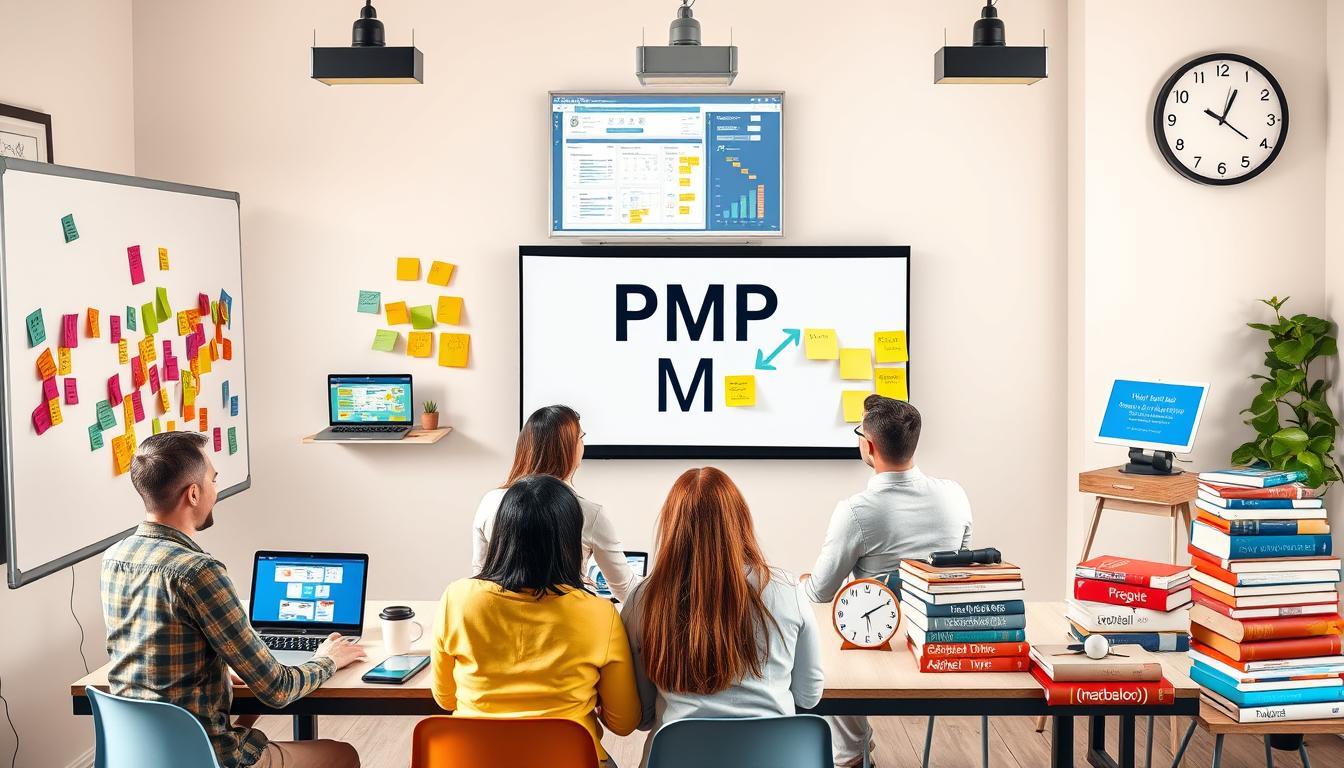Effective risk management is essential for any business that wants to succeed in today’s highly competitive market. It involves identifying and assessing potential risks, prioritizing them, and developing strategies to mitigate or eliminate them. One of the most effective ways to achieve this is by utilizing expert judgment. In this article, we will take a closer look at what expert judgment is, the role it plays in risk management, the different types of business risks, and how expert judgment can be leveraged to conduct a comprehensive risk assessment.
Defining Expert Judgment and its Role in Risk Management
Expert judgment is a process of seeking input and advice from experienced individuals who have a deep understanding of a particular subject area. It involves tapping into their knowledge, expertise, and intuition to make informed decisions about complex issues. In the context of risk management, expert judgment plays a critical role in identifying, assessing, and prioritizing risks. By seeking input from experts who possess specialized knowledge about specific risks, businesses can develop more reliable and effective risk management strategies.
Expert judgment is not only important in identifying and assessing risks, but it also plays a crucial role in developing risk response plans. Once risks have been identified and assessed, businesses need to determine the best course of action to mitigate or manage those risks. Expert judgment can help businesses evaluate the potential effectiveness of different risk response strategies and select the most appropriate one.
It is important to note that expert judgment is not infallible and should be used in conjunction with other risk management tools and techniques. While experts can provide valuable insights and guidance, they may not have all the information needed to make a fully informed decision. Therefore, businesses should use expert judgment as one of many inputs in their risk management process.
Understanding the Importance of Risk Management in Business
Risk management is essential for businesses of all kinds because it helps identify potential threats and opportunities, ensuring that the business is protected from downside risks while maximizing upside gains. Without effective risk management, a business can be exposed to significant financial losses, reputational damage, and even legal liabilities. Any business that wants to succeed in today’s environment must have a robust risk management strategy in place.
One of the key benefits of risk management is that it allows businesses to make informed decisions. By identifying potential risks and opportunities, businesses can evaluate the potential impact of different scenarios and make decisions based on data rather than guesswork. This can help businesses avoid costly mistakes and make better use of their resources.
Identifying Different Types of Business Risks
Business risks can be categorized in several ways. Some of the most common categories include financial risks, strategic risks, operational risks, reputational risks, and regulatory risks. Financial risks include risks related to investments, cash flow, and foreign exchange rates. Strategic risks include risks related to mergers and acquisitions, new market entry, and changing market conditions. Operational risks include risks related to production, supply chain management, and employee safety. Reputational risks include risks related to public perception, customer satisfaction, and brand image. Regulatory risks include risks related to compliance with legal and regulatory requirements.
It is important for businesses to identify and assess these different types of risks in order to develop effective risk management strategies. By understanding the potential risks that their business may face, companies can take proactive measures to mitigate these risks and minimize their impact. This can include implementing internal controls, developing contingency plans, and regularly monitoring and reviewing risk management processes. By effectively managing risks, businesses can protect their assets, maintain their reputation, and ensure long-term success.
Conducting a Comprehensive Risk Assessment
The first step in effective risk management is conducting a comprehensive risk assessment. This involves identifying potential risks, analyzing their likelihood and impact, and prioritizing them based on their severity. To conduct a comprehensive risk assessment, businesses must gather and analyze data from multiple sources, including internal reports, external research, and expert opinions. By leveraging expert judgment, businesses can obtain a more accurate understanding of the risks they face and develop more effective strategies to mitigate them.
One important aspect of conducting a comprehensive risk assessment is involving all relevant stakeholders in the process. This includes employees, customers, suppliers, and other partners who may have valuable insights into potential risks. By involving these stakeholders, businesses can gain a more holistic view of their risk landscape and identify risks that may have been overlooked.
Another key factor in conducting a comprehensive risk assessment is regularly reviewing and updating the assessment. Risks can change over time, and new risks may emerge as a business evolves. By regularly reviewing and updating the risk assessment, businesses can ensure that they are prepared to address new and evolving risks and can adjust their risk management strategies accordingly.
Leveraging Expert Judgment to Identify and Prioritize Risks
Expert judgment is particularly valuable in identifying and prioritizing risks, as experts can provide insights into potential risks that may not be immediately apparent. By tapping into their knowledge and experience, businesses can uncover hidden risks and prioritize them based on their severity and likelihood of occurrence. Experts can also provide guidance on the most effective risk mitigation strategies, enabling businesses to develop more effective plans.
One of the key benefits of leveraging expert judgment in risk identification and prioritization is that it can help businesses to avoid costly mistakes. Experts can provide a more nuanced understanding of risks, which can help businesses to avoid overreacting to minor risks or underestimating the severity of major risks. This can help businesses to allocate their resources more effectively, reducing the likelihood of costly errors.
Another advantage of using expert judgment in risk management is that it can help businesses to stay ahead of emerging risks. Experts can provide insights into emerging trends and technologies, which can help businesses to identify potential risks before they become major issues. This can help businesses to stay ahead of the curve and maintain a competitive advantage in their industry.
Developing a Risk Mitigation Strategy with Expert Input
Once potential risks have been identified and prioritized, the next step is to develop a risk mitigation strategy. Again, expert input is critical at this stage, as experts can provide guidance on the most effective strategies for mitigating specific risks. For example, experts may recommend implementing stricter security protocols to protect against cyber threats or investing in better supply chain management to prevent supply chain disruptions. By leveraging expert knowledge, businesses can develop robust risk mitigation strategies that are more likely to be effective.
It is important to note that risk mitigation strategies should be regularly reviewed and updated to ensure their continued effectiveness. As new risks emerge or existing risks evolve, businesses must adapt their strategies accordingly. This is where ongoing expert input can be particularly valuable, as experts can help identify emerging risks and recommend appropriate mitigation strategies. By regularly reviewing and updating their risk mitigation strategies, businesses can stay ahead of potential threats and minimize the impact of any risks that do arise.
Utilizing Expert Knowledge to Create Contingency Plans
Contingency plans are essential for any business that wants to be prepared for unexpected risks. By tapping into expert knowledge, businesses can develop contingency plans that are tailored to specific risks and potential scenarios. For example, if a business is concerned about the impact of a natural disaster, experts can provide guidance on the best ways to prepare for and respond to such an event. This can include developing backup plans for critical operations and establishing communication channels to ensure that all employees are aware of the situation and can respond appropriately.
Another benefit of utilizing expert knowledge in contingency planning is the ability to identify potential risks that may not have been considered by the business. Experts can bring a fresh perspective and offer insights into potential threats that the business may not have been aware of. This can help the business to develop more comprehensive contingency plans that cover a wider range of potential risks.
Furthermore, expert knowledge can also help businesses to prioritize their contingency planning efforts. By understanding the likelihood and potential impact of different risks, businesses can focus their resources on developing contingency plans for the most critical risks. This can help to ensure that the business is prepared for the most significant threats and can minimize the impact of unexpected events on its operations.
Incorporating Expert Judgment into the Risk Management Process
Incorporating expert judgment into the risk management process is essential for developing robust and effective risk management strategies. This can involve creating expert panels, seeking out external experts, and collaborating with internal experts within the business. By leveraging expert opinion and knowledge, businesses can develop more robust and effective risk management strategies.
Expert judgment can also be used to identify potential risks that may not have been previously considered. By involving experts in the risk management process, businesses can gain a more comprehensive understanding of the risks they face and develop strategies to mitigate them. Additionally, expert judgment can be used to assess the likelihood and potential impact of identified risks, allowing businesses to prioritize their risk management efforts.
Best Practices for Effective Risk Management with Expert Judgment
There are several best practices that businesses should follow when utilizing expert judgment in the risk management process. These include gathering data from multiple sources, establishing clear communication channels, prioritizing risks based on severity and likelihood, and developing robust contingency plans. Additionally, businesses should seek out internal and external experts with relevant experience and expertise. By following these best practices, businesses can develop more effective and reliable risk management strategies.
Another important best practice for effective risk management with expert judgment is to regularly review and update risk assessments. Risks can change over time, and it is important to ensure that risk management strategies remain relevant and effective. Businesses should also consider conducting regular training sessions for employees involved in the risk management process to ensure that they are up-to-date on best practices and can effectively utilize expert judgment.
Finally, businesses should also consider the potential biases and limitations of expert judgment in the risk management process. Experts may have their own biases or may be limited by their own experiences and knowledge. It is important to consider these factors and to seek out diverse perspectives when utilizing expert judgment in risk management. By doing so, businesses can develop more comprehensive and effective risk management strategies.
Case Studies: Successful Implementation of Expert Judgment in Risk Management
There are many examples of businesses that have successfully implemented expert judgment in their risk management strategies. For example, a large manufacturing company partnered with a cybersecurity firm to develop a comprehensive cybersecurity strategy leveraging expert knowledge. Similarly, a financial services company utilized expert judgment to identify and prioritize operational risks, leading to improved safety protocols and a reduction in the number of workplace accidents.
Another example of successful implementation of expert judgment in risk management is a pharmaceutical company that utilized expert knowledge to identify potential risks in their drug development process. By leveraging the expertise of scientists and regulatory experts, the company was able to identify potential safety concerns early on in the development process, leading to improved safety protocols and a reduction in the number of adverse events reported during clinical trials.
Conclusion: The Value of Using Expert Judgment for Effective Risk Management
Effective risk management is critical for any business that wants to succeed in today’s environment. By leveraging expert judgment, businesses can identify and assess potential risks more accurately and develop more effective risk management strategies. From conducting a comprehensive risk assessment to developing contingency plans, expert judgment plays a critical role in every stage of the risk management process. By following best practices and seeking out internal and external expert input, businesses can develop more robust and reliable risk management strategies, ensuring that they are prepared for anything that comes their way.
Furthermore, utilizing expert judgment can also help businesses stay ahead of emerging risks and trends. Experts in a particular industry or field can provide valuable insights and knowledge about potential risks that may not be immediately apparent to those without specialized expertise. By staying informed and up-to-date on industry developments, businesses can proactively identify and mitigate risks before they become major issues.




